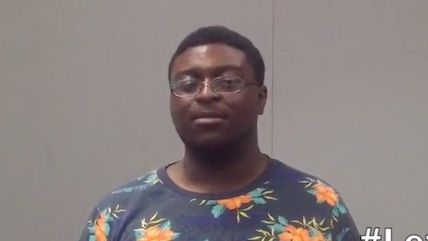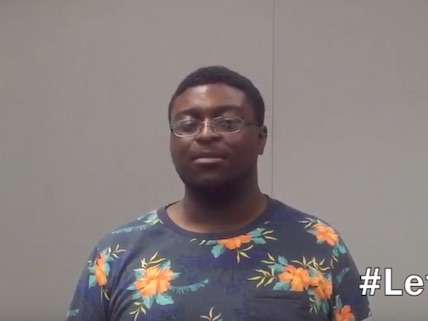American University Student Government Launches Campaign for Mandatory Trigger Warnings
'Without trigger warnings, students who have endured trauma... can be excluded for the classroom.'


American University Student Government President Devontae Torriente is leading a campaign to persuade the administration to adopt mandatory trigger warnings as an official classroom policy.
According to Torriente, it is trigger warning advocates who are the true defenders of academic freedom—they want to open the classroom up to everyone, including psychologically damaged students.
"The fact of the matter is, trigger warnings are necessary in order to make our academic spaces accessible to all students, especially those who have experience trauma," Torriente said in a video address. "In doing so, we uphold AU's commitment to academic freedom and allow all students to participate in the exchange of ideas and discussion in the classroom."
The absence of trigger warnings causes certain students to feel excluded, he continued.
"Without trigger warnings, students who have endured trauma, such as interpersonal violence, or experience post-traumatic stress disorder, can be excluded for the classroom, negatively impacting their mental health and education."
The campaign is notable for two reasons. For one thing, it puts the student government at significant odds with the faculty, which remains adamantly opposed to mandatory trigger warnings, according to Inside Higher Ed.
For another, it provides yet more evidence that foes of trigger warnings were right to worry that students would try to impose them on campus. Critics of this line of thinking often point to the fact that trigger warnings aren't required practically anywhere. That's true, of course, but the only reason they haven't yet been enshrined is that supporters of academic freedom continue to make the intellectual case against them.
They must continue to do so—a little more forcefully, perhaps—at AU as well.
If professors want to make accommodations for certain students on a special case basis, they are welcome to do so. If they think the content they are teaching is uniquely disturbing, they should feel free to prepare their students. But the exception is not the rule. A policy of pre-warning all students on the basis of their subjective discomfort would be too great a burden on the faculty, and would lead to fewer interesting conversations in class. For examples, read this and this.
